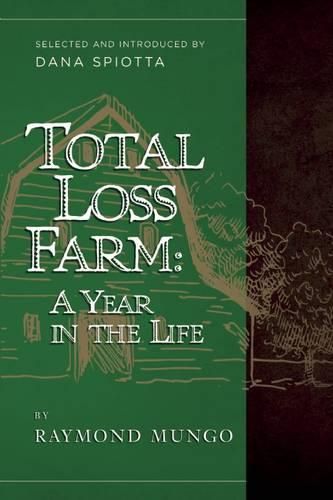Readings Newsletter
Become a Readings Member to make your shopping experience even easier.
Sign in or sign up for free!
You’re not far away from qualifying for FREE standard shipping within Australia
You’ve qualified for FREE standard shipping within Australia
The cart is loading…






In making her selection for Pharos Editions, Dana Spiotta tells us how drawn she was by the work of Raymond Mungo. [He] writes … about his own joy and his own pain, he is particularly good when he describes the land around him and how it feels on his body.
Indeed, if Henry David Thoreau had downed a handful of liberty caps before penning Walden it would have read much like Mungo’s Total Loss Farm, a rollicking memoir of the late 1960’s back-to-the-earth movement. Written in a limber prose style formed by the tempo of the times, Mungo takes us into the cultural tsunami of a failed radical politics as it broke on the shoals of a drug-fueled personal freedom and washed inland across the farmlands of Vermont, leaving a trail of damage and redemption in its wake.
Total Loss Farm attracted widespread critical and commercial attention in 1970, when the back-to-the-land hippie commune movement first emerged. The book’s first section, Another Week on the Concord and Merrimack Rivers, appeared as the cover article in the May 1970 issue of Atlantic Monthly. The hardcover first edition from Dutton was quickly followed by paperback editions from Bantam, Avon, and Madrona Publishers, keeping the book in print for several decades. Very recently, Dwight Garner in the New York Times Book Review cited Total Loss Farm as the best and also the loopiest of the commune books.
$9.00 standard shipping within Australia
FREE standard shipping within Australia for orders over $100.00
Express & International shipping calculated at checkout
In making her selection for Pharos Editions, Dana Spiotta tells us how drawn she was by the work of Raymond Mungo. [He] writes … about his own joy and his own pain, he is particularly good when he describes the land around him and how it feels on his body.
Indeed, if Henry David Thoreau had downed a handful of liberty caps before penning Walden it would have read much like Mungo’s Total Loss Farm, a rollicking memoir of the late 1960’s back-to-the-earth movement. Written in a limber prose style formed by the tempo of the times, Mungo takes us into the cultural tsunami of a failed radical politics as it broke on the shoals of a drug-fueled personal freedom and washed inland across the farmlands of Vermont, leaving a trail of damage and redemption in its wake.
Total Loss Farm attracted widespread critical and commercial attention in 1970, when the back-to-the-land hippie commune movement first emerged. The book’s first section, Another Week on the Concord and Merrimack Rivers, appeared as the cover article in the May 1970 issue of Atlantic Monthly. The hardcover first edition from Dutton was quickly followed by paperback editions from Bantam, Avon, and Madrona Publishers, keeping the book in print for several decades. Very recently, Dwight Garner in the New York Times Book Review cited Total Loss Farm as the best and also the loopiest of the commune books.